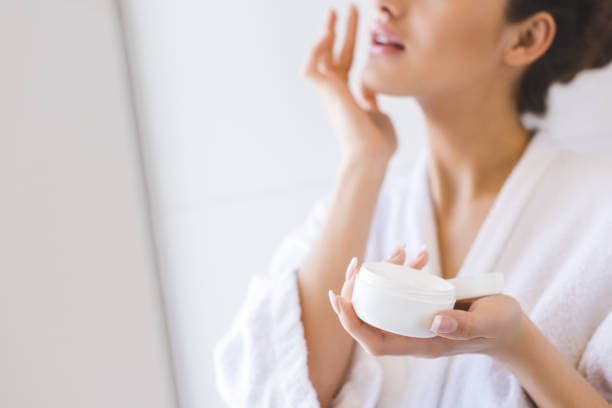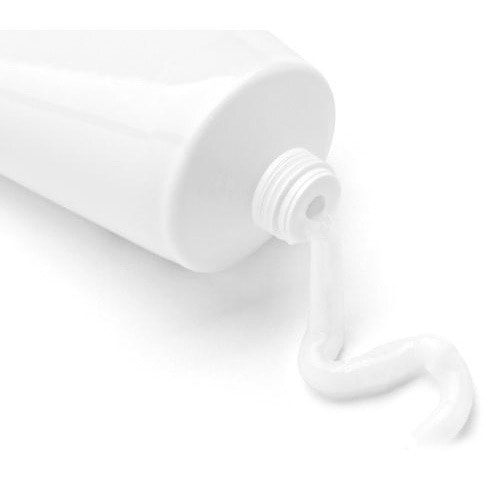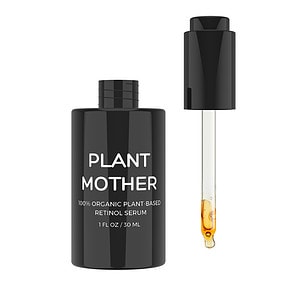Adapalene vs Tretinoin – What’s The Truth About These Products?

Today we want to talk about adapalene vs tretinoin. In the modern age of social media, it often feels like everyone on the internet is a dermatologist. If you scroll through TikTok, Instagram, or watch YouTube videos, you are likely to be subject to constant videos of people exclaiming their praise for various skincare products and hacks. Sometimes these claims serve as covert advertisement for a brand, or sometimes they really do speak to an individual’s successful experience with a product. Regardless, it’s important to do your research before purchasing anything that you put on your skin, no matter how many people claim that it works.
When it comes to skincare, there is one question that will probably never be answered, and that’s “How do I cure my acne?” The reason that there is no simple answer is because everybody’s skin is different, and we all experience different hormone levels, environments, and lifestyles. There is no universal cure for acne, especially because acne doesn’t just come in one form. However, this doesn’t stop dermatologists, estheticians, and self-proclaimed “experts” from publishing their opinions on which magical products everyone should try.
Two such products are adapalene and tretinoin, each of which are the subject of endless online speculations. There are countless videos and posts online praising both adapalene and tretinoin, and even some comparing the two. As we know, one person’s success with a product doesn’t guarantee that it will clear everyone’s skin. So, what’s the truth about adapalene and tretinoin?
Topical Retinoids
A topical retinoid refers to a product that is derived from Vitamin A. Vitamin A has several diverse health benefits, but retinoids in particular can be used to treat acne as well as hyperpigmentation, fine lines, and wrinkles. The six different topical retinoids that are currently on the market are retinol, tretinoin, adapalene, tazarotene, alitretinoin, and bexarotene. Each of these retinoids can be purchased in various forms and strength levels.
By exfoliating dead skin cells, topical retinoids encourage the growth of new skin and help eliminate acne-causing oils from the skin. Retinoids also have anti-inflammatory properties which reduce breakouts and flare-ups. Some patients with hyperpigmentation, dark spots, and wrinkles are also prescribed retinoids.
You may have heard of “retinols,” which are similar to retinoids. However, they’re not the same thing. When comparing retinoid vs retinol, the difference between the two is that retinoids include the whole spectrum of products derived from Vitamin A, while retinol is just one specific type of product.
Typically, retinols are a lower-dosage and more gentle form of retinoids. Therefore, they’re very good for people with sensitive skin. For example, Plant Mother’s Retinol Serum includes plant-based Vitamins A, C, and E, as well as essential fatty acids and over 20 ingredients rich in skin-healing nutrients. Unlike other retinol products, Plant Mother’s Retinol Serum is not a synthetic product. It is plant-based and contains a number of healthy nutrients to rejuvenate the skin and improve its texture. Therefore, the serum benefits your skin’s health without disrupting hormone balance or introducing harmful chemicals to the body. More importantly, it doesn’t cause redness, dryness, or skin purging associated with synthetic retinoids.
Now that we know what topical retinoids are, we can look into two popular version on the market– adapalene vs tretinoin. What are they? How do they work?

Adapalene
Adapalene is an FDA-approved topical retinoid. Out of all the retinoid products available, doctors believe adapalene to be the gentlest and the most tolerable. This means that while the human skin can handle adapalene well, it does not have as strong of an impact on acne as other retinoids. For that reason, adapalene is often recommended for people with sensitive skin. In general, dermatologists generally prescribe topical retinoids to patients who have already tried other forms of acne treatment and not been successful. If you are attempting to use topical retinoids for the first time, a gentler product that is adapalene-based might be a good starting point.
Additionally, adapalene is quite a stable product, which has various outcomes. It means that adapalene is safe for use during the daytime and doesn’t interact poorly with the sunlight. However, sun protection should always be worn when using topical retinoids.
Further, retinoids may interact poorly with other skincare products, particularly with exfoliators or toners that dry out the skin. Just like retinoids, exfoliators encourage cell turnover, and too much exfoliation can irritate the skin. When starting a retinoid, it is normal to experience increased sensitivity or dryness. Within a few months, users of adapalene generally notice improvements in acne and in any additional symptoms of the retinoid product. So, when we talk about adapalene vs tretinoin, tretinoin is much stronger (and for some skin types harsher) and works faster than adapalene.
Tretinoin
Tretinoin is a product that differs from other topical retinoids in several ways. Therefore, it is important to know the difference between tretinoin vs retinol. For example, tretinoin requires a prescription and is always synthetic. In comparison, many retinols and adapalene products are available for over-the-counter purchase. Tretinoin is recognized as the most popular topical retinoid product. Just like adapalene, tretinoin is used to treat acne, dark spots, and hyperpigmentation. It can also treat sun-damaged and wrinkled skin and is available in gel or cream form. Some tretinoin-based products also contain antibacterial ingredients to fight against the spread of acne.
Just like all retinoids, tretinoin increases the turnover rate of skin cells and speeds up collagen production, which keeps the skin healthy and gives it a livelier appearance. Again, tretinoin is only available with a prescription, as not every skin type tolerates it. If you have skin that tends to be sensitive or dry, tretinoin might not be the retinoid product for you. This is because tretinoin side effects can be very harsh and long-lasting.
Instead, a gentler retinoid such as Plant Mother’s Plant-Based Retinol may be a safer choice that will still work wonders for your skin texture and collagen production. However, it is important to note that although tretinoin may be harsh on sensitive and dry skin, it is safe. The product is effective on moderate acne and will allow you to work toward healthier and blemish-free skin.
Adapalene vs tretinoin - can tHEY be combined?
Many skincare products contain several different elements to fight acne and other skin problems most effectively. So, should you use tretinoin and adapalene at the same time? Dermatologists generally recommend against it. Because both medications are intended to treat the same issue and are both derived from Vitamin A, using them in conjunction is unnecessary. Therefore, when thinking about adapalene vs tretinoin, you should choose one of them. It should be the product that addresses your specific skin type and problem.
Additionally, topical retinoids can be harsh on the skin and require an adjustment period as your skin adapts to the treatment. Using both adapalene and tretinoin at the same time can increase the irritation experienced by the skin and worsen any other side effects. It’s better to determine which retinoid is best suited for your skin type and then try out that one to see if it alleviates your acne.
Broadly speaking, when it comes to skincare, less is more. Using simple products with as few ingredients as possible is typically the safest bet. When your skincare routine is too lengthy, it’s difficult to determine which products are truly helping your skin and which may actually be causing harm. It’s easy to fall for flashy packaging or brands that were founded by your favorite celebrity, and those products are often good! But don’t forget to read the fine print and make sure you understand what you’re putting on your face. Just because a bunch of TikTokers swear by something doesn’t mean it’s right for your skin. After all, the skin is the body’s largest organ… we have to protect it!
Should I use adapalene or tretinoin?
Now that we’ve determined the profile of each product and that they should not be used in conjunction, it’s time to decipher which retinoids to use. For starters, if you struggle with acne or other dermatological issues, trying a retinoid product is probably a great idea. Topical retinoids certainly do help with blemishes, inflammation, hyperpigmentation, and wrinkles. If you want to ease your way into the world of retinoids, the vegan Retinol Serum from Plant Mother is safe, 100% organic, and made from completely plant-based materials. There is no need to worry about harmful chemicals or synthetics when using Plant Mother products, as each of the included nutrients are totally natural.
If you are attempting to decide between adapalene vs tretinoin for your skin, here are some factors to consider.
Speed: Tretinoin works faster than adapalene, showing results within a few weeks. However, tretinoin might make your skin worse for around a week before it gets better. Adapalene takes around 12 weeks to improve acne.
Effectiveness: Both adapalene and tretinoin are effective forms of acne-treatment and can be purchased in different strengths. However, tretinoin is generally stronger than adapalene. It has a greater impact on acne than adapalene does when the treatments are compared.
Other uses: Tretinoin only has FDA approval for acne treatment, while some adapalene products have approval for treating dark spots, and wrinkles. For this reason, it is safer to rely on adapalene if you’re looking to tackle multiple issues. However, many dermatologists on tiktok swear by tretinoin for its anti-aging and skin rejuvenation results.

Adapalene vs tretinoin – more reasons to use them
Price: All retinoid products range greatly in price. The most popular adapalene product is probably Differin gel, which retails for around $15. Retin-A, a common tretinoin cream, costs around $96. However, you can find each of these retinoids at a variety of price points, and medical insurance can help alleviate prescription costs.
Side effects: Both adapalene and tretinoin products are prone to causing temporary negative side effects in users. As your skin adjusts to a new product, it is common to experience dryness and breakouts. In particular, you may experience tretinoin purging, a process during which your skin pushes all of the dirt and bacteria out of your pores, causing temporary acne to appear. It’s important to remember that skin purging and other symptoms are generally short-lived. However, tretinoin side effects can be harsh and long lasting too. However, retinoids do make your skin quite sensitive, so sun protection and proper hygiene is always important.
Adapalene vs tretinoin - making decisions about retinoids
All in all, there are many factors to consider before choosing which retinoid product, if any, to try out. More natural options such as Plant Mother’s products are always a safe and successful option for anti-aging and improving your skin’s texture. If you’re interested in testing out adapalene vs tretinoin, it’s a good idea to speak with a doctor and hear their recommendations. Always remember– just because a product works wonders for someone on the internet doesn’t mean that it’s meant for you. Real estate on your skincare shelf is valuable– always do your research before adding anything new!
MEDICAL DISCLAIMER:
This content is for informational and educational purposes only. It is not intended to provide medical advice or to take the place of such advice or treatment from a personal physician. All readers of this content are advised to consult their doctors or qualified health professionals regarding specific health questions. The publisher of this content does not take responsibility for possible health consequences of any person or persons reading or following the information in this educational content. All viewers of this content, especially those taking prescription or over-the-counter medications, should consult their physicians before beginning any nutrition, supplement, skincare product, or lifestyle program.

